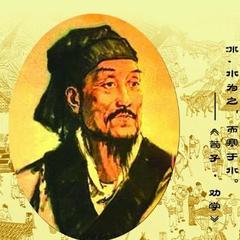Aristotle Quotes about Life

Socrates, Plato, Aristotle (1967). “Wit and Wisdom of Socrates, Plato, Aristotle: Being a Treasury of Thousands of Glorious, Inspiring and Imperishable Thoughts, Views and Observations of the Three Great Greek Philosophers, Classified Under about Four Hundred Subjects for Comparative Study”
Socrates, Plato, Aristotle (1967). “Wit and Wisdom of Socrates, Plato, Aristotle: Being a Treasury of Thousands of Glorious, Inspiring and Imperishable Thoughts, Views and Observations of the Three Great Greek Philosophers, Classified Under about Four Hundred Subjects for Comparative Study”
Aristotle (1953). “Ethics: The Nicomachean Ethics”
Attributed to Aristotle in Diogenes Laertius "The Lives and Opinions of Eminent Philosophers" translated by C. D. Yonge and Henry G. Bohn (p. 188), 1853.
Attributed to Aristotle in "Optimize Your Life!" by Bernhoff A. Dahl, p. 111, 2005.
Aristotle (2016). “Metaphysics”, p.305, Aristotle
The educated differ from the uneducated as much as the living from the dead.
Aristotle (2015). “The Aristotle Collection [50 Books]”, Catholic Way Publishing
"Rhetoric", II. 15. Par, III in "Hoyt's New Cyclopedia Of Practical Quotations" by Jehiel Keeler Hoyt, (pp. 440-455), 1922.
In all things of nature there is something of the marvelous.
"Parts of Animals". Book by Aristotle. Book I, 645a.16,
Aristotle (1869). “The Nicomachean Ethics of Aristotle”, p.335
It is possible to fail in many ways...while to succeed is possible only in one way.
Nichomachean Ethics (c. 330 b.c.).
It is best to rise from life as from a banquet, neither thirsty nor drunken.
Socrates, Plato, Aristotle (1967). “Wit and Wisdom of Socrates, Plato, Aristotle: Being a Treasury of Thousands of Glorious, Inspiring and Imperishable Thoughts, Views and Observations of the Three Great Greek Philosophers, Classified Under about Four Hundred Subjects for Comparative Study”
Aristotle (2004). “The Works of Aristotle: Aristotle on the parts & progressive motion of animals, the problems, on indivisible lines to which is added Thomas Taylor's The elements of the true arithmetic of infinites”






